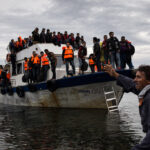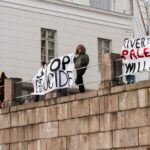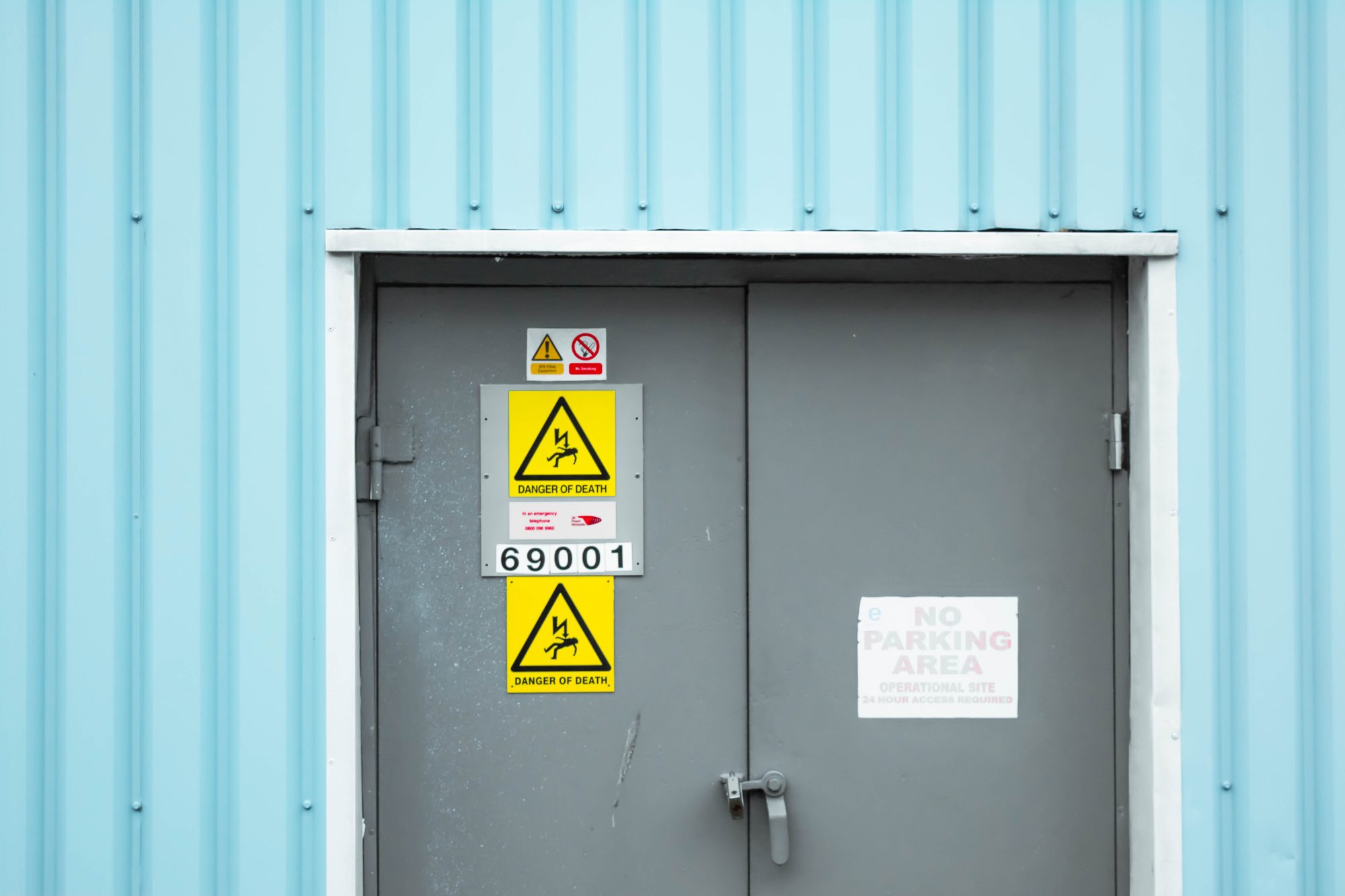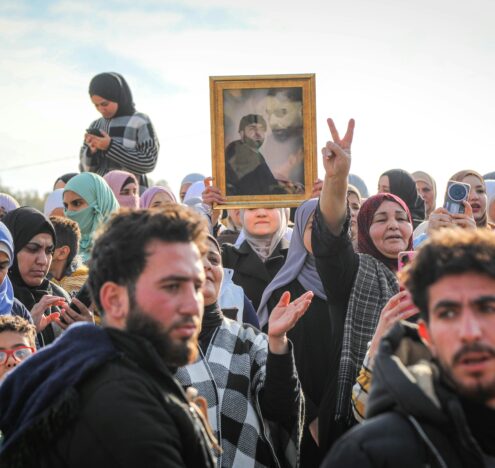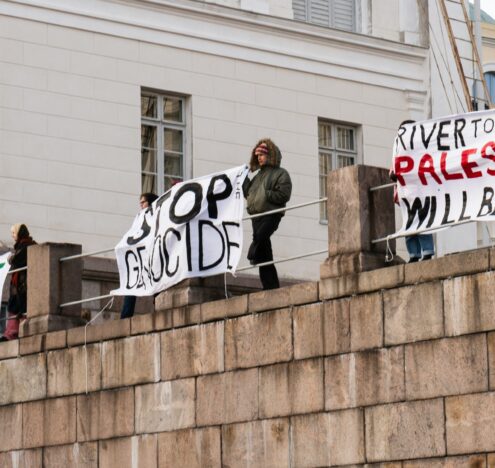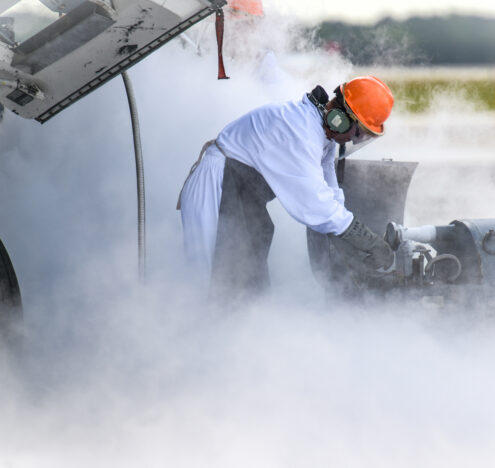Earlier this week, in his my-thoughts-on-the-world memo, aspiring Fareed Zakaria and jet-setting Davos pundit Ian Bremmer claimed that last week was “the most signficant and dangerous week of geopolitics” since he started his firm 20 years ago. This kind of hyperbolic political “analysis” has been the stock-in-trade of the global pundit class for years, but has been put into hyperdrive since Trump rolled down Pennsylvania Avenue and made Richard Haass’ head explode. Bremmer goes on to mention that the week of September 11, 2001, may have been more “important,” but stresses that owing to a “stable, US-led global order,” at the time the overall fallout to political risk was more “limited.” He helpfully omits any definitions or measurements of where this “stable order” was located or how this “risk” was “limited.”
Setting aside for a moment the retrospectively rose-colored platitudes about a US-led-order, and the parade of vaguely defined or impossible-to-define-terms, the idea of this past week being labeled as the most significant and dangerous week in the last 20 years by one of the most prominent commentators in the field makes one raise one’s eyebrows a touch. After all, the world is at (relative) peace, economic conditions are, rather placid, and despite the histrionics of anti-establishment politicians, the institutions they have set out to overturn are still standing. This last week may have seen plenty of announcements but less action to match. So, what gives with these claims of “significance” and “danger?”
While Bremmer’s phrasing and tone unnecessarily elevate the portentousness of last week’s events, I think he is on to something that’s worth looking at. Because it’s not so much that last week in America, or any week this year, has actually seen a major diplomatic crisis, or the outbreak of hostilities, or the extra breakdown of social order. It’s rather that the present moment feels (and has felt for some time) as if perched on the edge of such calamity, or indeed many more than one such calamity.
It is one thing to have to live with the spectre of knowing that the unexpected can happen at any moment and create havoc. This is the uncertainty at the heart of human society and it is part of the background noise of life. Something that distinguishes the current moment is that it is not so much the unexpected calamities that concern us, but rather the panoply of entirely expected calamities. Whether it’s the potential escalation of a few ill-considered tariffs to a full-scale global trade war, or the appointment of John “Mustache of Doom” Bolton as NSA to lead to shooting wars in Korea or Iran, or Russian revanchism mixed with an unpredictable President guiding a NATO response, or any number of other identified cracking points in global political stability, the issue is that we can see them, watch them, and worry about them. The known, named terror is always more terrifying than the complete unknown, especially when we’ve been responsible for creating it. Horror films have employed this tactic to great success — it’s a lot scarier if the audience knows the killer is behind the door than if they don’t.
And even more than knowability, there is the attendant tragic knowledge that we bear the burden for having created this situation in which so much sits on the knife’s edge. We created the system of interlocking global treaty and economic obligations to which we have bound ourselves, always with the expectation that it would be operated as planned. We developed and implemented a set of nuclear policies and doctrines that concentrate so much authority in a single person, planning always that this person would be “one of us.” We created, over the decades, the Imperial Presidency, ignored the honest warnings on the “sought and unsought” influence of the Military Industrial Complex, and armed ourselves beyond the teeth, justified by a unitary set of theories about the state of the world, dismissing as naive those who thought the unchecked militarism might be excessive or even wrong. And more than any of this, we took it as accepted that this set of assumptions would never be durably challenged, either by the world at large or by our own polity.
But it is. And this is the tragic nature of the problem — that we are the authors of our own predicament; that this moment, so heavy with the names of potential disasters is the product of both our own best impulses and our worst oversights. Indeed, the slow-motion stage-setting of the setpieces of these potential disasters, and our collective amazement at what we have wrought has a tinge of the classically tragic to it.
It brings to mind a moment in Book II of the Aeneid, when the Trojans brought the Greek Horse inside the city, and in so doing, sealed their fate. The horse, as Aeneas describes, was feta armis, pregnant with arms — the womb that carried all their folly, and madness and hubris, about which they received their ample warnings, from men and gods and nature, all of which they ignored:
We lay open the walls and we open up the city’s buildings.
All gird themselves for the work, and under its feet they place rollers
and secure the ropes tightly around its neck.
It climbs our walls, that fateful engine, pregnant with arms.
….
Four times on the very threshold of the gate it came to a standstill,
and from its womb four times the armor gave forth a groan;
We press on nevertheless, thoughtless, blind, and mad
And set the ill-omened monster at our hallowed citadel.
….
We unfortunate ones, for whom that day was our last,
Throughout our city, did wreathe the shrines of the gods
We, of course, know how Troy ended, which is why Aeneas tells his story as an exile in the court in Carthage, rather than living on in Priam’s High Citadel across the sea.
Of course, classical mythology is not a guide to policy-making in anything like a one-for-one manner, and we are not Troy. But to the extent that we live now with an ever-lengthening list of “almost-geddons” as a kind of background noise to daily life, and a set of offices and officers and powers and tools that are their necessary and inextricable initiators, we must also come to terms with our own liability in creating the apparatus that makes this possible and perpetuates it. Slowly, deliberately and over decades, we, too, have brought a fateful engine into our citadel. Our task is now to remove it.





